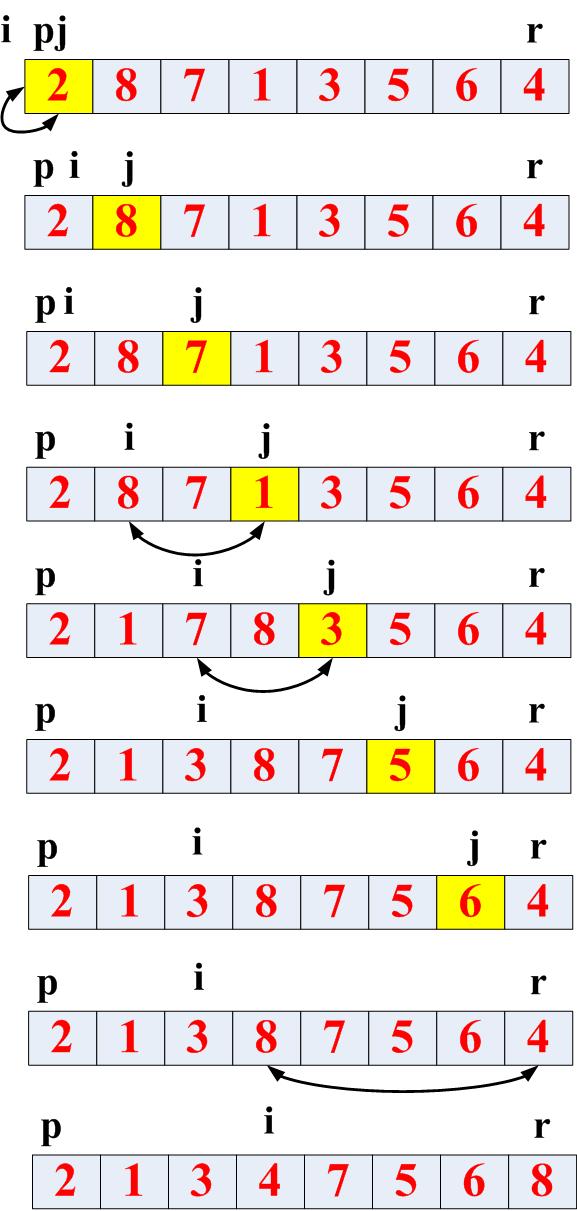首页 > 代码库 > 高速排序 解析
高速排序 解析
高速排序法原理也是用了分治法,主要原理是将数组分为A[p..q-1] 和A[q+1..r],然后调整元素使得A[p..q-1]小于等于q,也小于等于A[q+1..r]。然后不断的递归,到最后就排序完毕。
上代码:
// QuickSort.cpp : 定义控制台应用程序的入口点。//#include "stdafx.h"#include<iostream>using namespace std;/*函数声明*/void QuickSort(int *A,int p,int r); //高速排序int Partition(int *A,int p,int r); //分治法void Display(int *a,int size); //打印函数/*主函数*/int _tmain(int argc, _TCHAR* argv[]){ int size,*a; while(1) { cout<<"输入字符串长度:"<<endl; cin>>size; if(size > 0) { cout<<"请输入"<<size<<"个待排序数字:"<<endl; a = (int*)malloc(size*sizeof(int)); //a = new int [size]; for(int i=0; i<size; i++) //输入数组 { cin>>a[i]; } QuickSort(a,0,size-1); //调用高速排序函数 } else cout<<"输入长度错误!"<<endl; Display(a,size); //打印数组 } return 0;}/*函数定义*/void QuickSort(int *A,int p,int r) //高速排序{ int q; if(p<r) //假设p 小于等于 r 那么就程序不运行 { q = Partition(A,p,r); //调用分治法 找到q的值 QuickSort(A,p,q-1); QuickSort(A,q+1,r); }}int Partition(int *A,int p,int r) //分治法,作用就是将数组分为A[p..q-1] 和A[q+1..r]{ //然后调整元素使得A[p..q-1]小于等于q,也小于等于A[q+1..r] int x,i,j,temp; x = A[r]; //将最后一个值保存在x中 i = p-1; //開始的时候将i 移动到数组的外面 for( j=p; j<=r-1; j++) { if(A[j]<=x) { i +=1; temp = A[i]; //exchange A[i] = A[j]; A[j] = temp; } } temp = A[i+1]; //exchange A[i+1] = A[r]; A[r] = temp; return i+1; //返回q值}void Display(int *a,int size) //打印函数{ cout<<"排序结果为:"<<endl; for(int i=0; i<size; i++) //打印数组 { cout<<a[i]<<" "; } cout<<endl<<endl;}
以下我们測试一组数组: 2 8 7 1 3 5 6 4

当中第一次分治法调用示意图例如以下:

高速排序 解析
声明:以上内容来自用户投稿及互联网公开渠道收集整理发布,本网站不拥有所有权,未作人工编辑处理,也不承担相关法律责任,若内容有误或涉及侵权可进行投诉: 投诉/举报 工作人员会在5个工作日内联系你,一经查实,本站将立刻删除涉嫌侵权内容。
